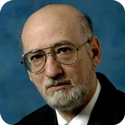Newsletter Archives
-
Take a selfie – NOW!
LEGAL BRIEF

By Max Stul Oppenheimer, Esq.
Deepfakes are a growing problem. Could taking a selfie be your best defense?
In the last column, we saw why law must lag technology. It must, because legislators have no better crystal ball than the rest of us — and judges, faced with the task of extrapolating existing statutes to situations that were not foreseen, reach different conclusions as to how to draw the curve. Therefore, a period of uncertainty — until a legislature reacts or a judicial consensus is reached or imposed by the Supreme Court — is inevitable.
Read the full story in the AskWoody Plus Newsletter 18.45.0 (2021-11-22).
-
Dickens was right (for the wrong reason)
LEGAL BRIEF

By Max Stul Oppenheimer, Esq.
In Oliver Twist, Charles Dickens wrote, “The law is a ass …”
He went on to say the law is also an idiot, but there we part company. The law is, in fact, an ass in the sense that it is slow to change and easily spooked by sudden moves.
Read the full story in the AskWoody Plus Newsletter 18.34.0 (2021-09-06).
-
The sheriff in the inbox

ISSUE 18.30 • 2021-08-09 LEGAL BRIEF

By Max Stul Oppenheimer, Esq.
Has the International Trade Commission come up with the opening wedge in eliminating important protection against lawsuits — or merely the worst idea ever for a holiday toy?
Do you have a Facebook or LinkedIn or Amazon.com profile? Have you ever annoyed a foreign individual or company? How would you feel about opening one of your accounts and discovering a summons to appear in, say, Beijing, to explain yourself? The US International Trade Commission (ITC) may have just opened the door to that possibility.
Read the full story in the AskWoody Plus Newsletter 18.30.0 (2021-08-09).
This story also appears in the AskWoody Free Newsletter 18.30.F (2021-08-09). -
You can be like Muhammad Ali – or Alibaba
LEGAL BRIEF

By Max Stul Oppenheimer, Esq.
What do you think of when you hear “Ali?”
Muhammad Ali Enterprises wants to be sure that you think of them and the great boxer — and the fine line of ring tones, computer games, sunglasses, and other products they plan to sell under that name.
Alibaba Group is concerned that this will confuse their billion or so customers and has taken issue — several hundred pages’ worth — with the United States Patent and Trademark Office’s decision to allow Muhammad Ali Enterprises to register the trademark “Ali.” Whoever wins, it’s going to be expensive.
Read the full story in the AskWoody Plus Newsletter 18.24.0 (2021-06-28).
-
Click here to agree

ISSUE 18.19 • 2021-05-24 LEGAL BRIEF

By Max Stul Oppenheimer, Esq.
Any time you install new software or a new service, you are faced with a seemingly simple task: checking a box confirming that you agree to the company’s terms of service.
If you’ve followed the associated link, chances are you’ve encountered 20 or 30 (or 40) pages of pseudo-English. Using the ubiquitous Microsoft Services Agreement as an example, here’s what you are typically agreeing to. For simplicity, we’ll stick with basic U.S. accounts. Most specific products and some special types of account (for example, accounts for minors, education accounts, and organizational accounts) have additional rules. Other rules apply in other countries. Your mileage may vary.
Read the full story in the AskWoody Plus Newsletter 18.19.0 (2021-05-24).
This story also appears in the AskWoody Free Newsletter 18.19.F (2021-05-24). -
The coming battle for control of the Internet
LEGAL BRIEF

By Max Stul Oppenheimer, Esq.
The Supreme Court is not required to explain itself.
It decides cases by majority vote, and it is up to the justices to decide how much or how little information to provide to explain why they voted the way they did. Typically, there is one opinion explaining the Court’s decision (and, if the decision is not unanimous, a dissenting opinion explaining the disagreement) and an indication of which justices join in the decision. When a justice takes the additional step of writing a separate opinion, it does not change the outcome but does provide valuable information. Not only does it give us insight into nuances of that justice’s view, it also tells us that the justice considers it so important that it is worth the extra work of explaining it.
Read the full story in the AskWoody Plus Newsletter 18.15.0 (2021-04-26).
-
The problem with copyright: fair use
LEGAL BRIEF

By Max Stul Oppenheimer, Esq.
All might be fair in love and war, but not in copyright
If you think about copyrights for a moment, it might occur to you that they are unconstitutional. After all, the First Amendment says that Congress shall make no law abridging the freedom of speech. Yet there it is, in Title 17 of the U.S. Code: a law saying that Congress has given copyright owners the power to stop others from copying or publicly performing their copyrighted words.
Read the full story in the AskWoody Plus Newsletter 18.12.0 (2021-04-05).
-
The best things in life are copyrighted
LEGAL BRIEF
The best things in life are copyrightedBy Max Stul Oppenheimer, Esq.
At least on the Web.
Even though there is a sea of material there for almost effortless copying, nearly everything on the Internet is subject to copyright law. And the purpose of copyright law is specifically to protect the creators of copyrighted works from unauthorized copying.
Here’s the problem that intellectual property law is designed to solve. Innovation is a gamble. It takes time, effort, and money to develop something new, and it is hard to predict whether the gamble will pay off or not.
Read the full story in AskWoody Plus Newsletter 18.8.0 (2021-03-01).


